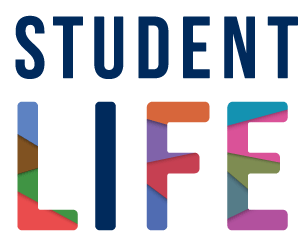
Posted August 6, 2021
By Kirsty Clarke
Academic Success now offers peer mentor appointments, with personalized academic support, to all undergraduate and graduate students. Because it’s student peers providing the service, they can relate to where callers are in the learning process—they’ve been there, they know.
In a welcoming and nonjudgmental environment, peer mentors can help with things like reading and note-taking for tests, exams and assignments, setting and achieving goals, and finding University services and supports.
Jonathan Vandor, Learning Strategist, Peer Programs at Academic Success, explained why the peer mentor service was established:
“We think it’s valuable for students to be able to talk to others honestly about what they’re facing at U of T. We wanted to offer an opportunity for students to talk to peer mentors without a sense of being evaluated.”
Especially in the current context, students can really struggle: the need for help has increased. Over the fall and winter term, Academic Success peers were able to offer 130 peer-led workshops and over a thousand peer mentor appointments. “This radically expands our ability to support students,” says Jonathan.
Students who used this service recently had varying reasons for seeking a mentor. Some had very specific questions. Lily, a fourth-year student, said “I needed help with the new test format on Quercus, where going back to previous questions in the test wasn’t an option. I received very constructive advice and was able to practice the strategies, getting a much better mark in the next test, with a better experience in the Quercus test and exam overall.”
A second-year student, Maureen, said “I realized that the transition from in-person to online classes affected my study routine and I was seeking a better way to study. The best thing about it for me was that I was introduced to learning tools and resources offered by the school that I was unaware of.”
Katerina, another second-year student, wanted advice about online classes as well: “I decided to get involved as I was having trouble adjusting to the online format and developing appropriate study habits.” She found, “It is a great resource to get quality advice and it helps as they are students. They speak from experience and help with next steps.”
Others had broader questions, and just wanted to know more about the U of T experience. Minahil, an EngSci student, reported, “Honestly, I just wanted to know more about U of T from the student perspective. I felt like a student could help answer my questions better about navigating the big academic and personal change. A video call appointment with a peer sounded like the perfect solution and so I went for it!” He found that “It was very impressive to see that the peer mentors were open to any and every query.”
And Raymond, who is entering a Master’s program this fall, says he “realized the value of seeking guidance from someone who has been through a research-stream Master’s program.” He appreciated having access to the biography of each mentor available, which allowed him to pick some that seemed best suited to help him. “Both mentors, as requested, evaluated my self-invented preparation strategies for my Master’s program. One of them forwarded many resources corresponding to my specific questions regarding the various aspects of a Master’s thesis. The other informed me of the steps necessary to ensure a sustainable professional relationship with my chosen supervisor.”
These students learned lots from their mentors, and recommend the experience to others. Lily notes that “It’s always good to chat with a mentor about your problems and try out new strategies! It’s good to learn to seek help and adapt to new environments and situations.”
Minahil was enthusiastic about his mentor’s efforts, saying she “was so forthcoming and friendly, which made it really easy for me to open up and ask the questions I had, comfortably. As she is also an international student, she could relate to my confusion regarding the whole adjustment phase and understanding U of T before shifting to Canada. The experience made me realize that there is always an avenue for me to seek help at U of T and that wonderful people will be there to assist.” He adds that students should not hesitate to reach out to mentors. “You’ll find out something new and maybe even make a friend. You might even find some semblance of comfort knowing that you’ll see a familiar face on campus.”
There is also an important element of community building and belonging. Jonathan notes that hiring students from all backgrounds and identities is an important part of the service. “Being able to identify with the person they’re talking and listening to helps students know that they both belong at the University and can grow here.”
Maureen said she would recommend students get involved “whether they are looking for academic advice from a peer or whether they want to be a mentor themselves. This is because for the students seeking advice it enriches the learning experience such that they are introduced to these available resources that they may not know of. Additionally, talking to someone willing to help with our success makes learning a positive experience.”
To find out more about the academic mentors, visit Academic mentor appointments.




